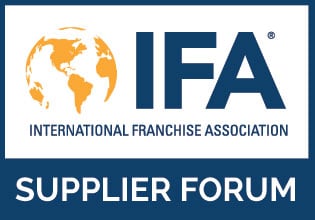
Equipment Use Permits in New York City
How It Works?

Step 1
Send us the floor plan and other details

Step 2
Our experts will inspect your building equipment

Step 3
We file for equipment permit on your behalf
Get In Touch
Need help or additional information?
Give us a call on
(786) 788-0295
Get in touch - 212-575-5300
Equipment Use Permit
- Designed and filed with DOB in 2 weeks
- File all your Equipment Use Permit Cards
- Get your FDNY Permit Accounts approved
- Register your boiler with the NYC DEP
- Avoid equipment objections and penalties
Equipment Use Permits in New York City
Hassle-Free Filing
File your equipment use permits as required by the NYC Department of Buildings and Fire Department.
Professional Inspection
Get a professional inspection of your building equipment, and renew all your permits on time.
NYDEP Compliant
Boiler equipment registration and renewal with the NYC Department of Environmental Protection.
Equipment Use Permits in New York City
Modern buildings use many types of equipment to keep a suitable environment for human occupancy. However, equipment malfunctions can create fire risks and health hazards. To prevent these issues, New York City requires an Equipment Use Permit (EUP) for many devices. Equipment is inspected regularly to renew these permits, and the renewal interval depends on the type of equipment.
An EUP is linked to a specific piece of equipment, but it affects the entire property. In other words, a building can only stay compliant by having a valid EUP for all applicable units. Not having EUPs or letting them expire will normally bring penalties for building owners.
The equipment types that require an EUP include boilers, water heaters, heat pumps, elevators, fire alarms, fire sprinklers, air conditioners, refrigeration units and fuel storage. To make sure all your equipment has the necessary permits, the best solution is getting an inspection from a professional engineering firm.
Equipment Use Permit Cards are issued by the NYC Department of Buildings, and the Fire Department (FDNY) is notified of all equipment that receives an EUP Card. The FDNY will schedule periodic inspections, and the building owner gets a Notice of Violation (NOV) if an EUP Card is missing. The FDNY also charges an inspection fee, regardless of building compliance.
An EUP must be signed by the applicant and the inspector, and a copy must be posted on equipment before operating. Even if you have an EUP Card, you can get a Notice of Violation for not posting it. By dialing 311, building owners can contact the NYC Department of Buildings to verify if a piece of equipment needs an EUP.
What Is an FDNY Permit Account?
The FDNY uses the term “Permit Account” to describe any case where their approval is needed, and this includes equipment use permits. A Permit Account is often tied to a piece of equipment, but there are exceptions. For example, public assembly places require a Permit Account that is not equipment-specific.
An FDNY Permit Account has an expiration and renewal date, and it requires periodic payments and inspections. Specific requirements and procedures apply depending on the type of equipment covered, and non-compliance leads to FDNY violations.
Equipment Use Permits for Air Conditioning Systems
Most air conditioning systems in NYC need an Equipment Use Permit, and only units that meet all the following conditions are exempt:
- A voluntary system that only provides air conditioning or ventilation in one floor.
- Does not use lot line windows for intake, exhaust, or equipment mounting.
- Does not occupy a public hall, passage or stairway.
- Does not reduce ventilation below code requirements in any area.
- Does not penetrate fire divisions, roofs, floors or walls. Only packaged ACs up to 3 tons that use windows or below-window sleeves are exempt from this limitation.
Meeting these conditions is difficult, and air conditioning options are greatly reduced for building owners who want to avoid permits. HVAC engineers recommend getting EUP Cards, since they are needed for the most efficient air conditioners. The extra paperwork and renewals are a small price to pay for the electricity savings achieved by high-efficiency AC units.
Ducted and split-type air conditioners have a much higher efficiency than window units and packaged terminal air conditioners (PTAC). However, ducted and split ACs need an EUP even if their capacity is below 3 tons, since ducts or refrigerant lines must cross walls. However, these modern AC systems achieve savings over 50% compared with window and PTAC units.
Building owners must be aware that all air conditioning systems are subject to regular inspections, even those that are exempt from an Equipment User Permit.
Consider that an EUP Card must match the equipment nameplate. If the permit has already been emitted and a different unit is installed, the owner must file a Post Approval Amendment. This document proves that as-built equipment meets the NYC Energy Code.
Equipment Use Permits for Refrigerating Systems
An EUP is necessary for a refrigerating systems that meets any of the following conditions:
- The refrigerating is classified as group A1, A2, A3, B1, B2 or B3
- Mounted on / suspended from a roof or ceiling
- Floor mounted system with a compressor size of 5 hp or more
A refrigeration system with an EUP will get an annual visit from an FDNY inspector, on a date before the permit expiration. In addition to the EUP, some refrigeration systems require a Certificate of Qualification for Refrigerating System Operating Engineer, or Q-01. This certificate is required for equipment that meets any of the following conditions:
- Group A1 refrigerant, with a compressor size of 50 hp or more.
- Group A2, A3, B1, B2 or B3 refrigerant, with a load of 200 lb or more.
- Group A2, A3, B1, B2 or B3 refrigerant, with a non-automatic system and a load of 50 lb or more.
The NYC Fire Code establishes two types of supervision from a Q-01 certificate holder: personal supervision and general supervision.
Under personal supervision, the engineer who holds the Q-01 must be present in the building when the corresponding equipment is in operation. In other words, a Q-01 holder can provide personal supervision for different equipment in the same building, but not equipment running simultaneously in different buildings.
Under general supervision, the Q-01 holder is responsible for the refrigerating equipment in operation, but being physically present is not necessary. As a result, a Q-01 holder can provide general supervision to equipment that runs simultaneously in different buildings.
Equipment Use Permits for Boilers and Fuel Storage
Boilers and other combustion equipment must be kept in optimal condition, since the consequences of a malfunction can be severe. Uncontrolled combustion can start a fire, and the gases emitted are very dangerous for occupants. For this reason, a boiler cannot operate until it has been inspected, tested, and issued an Equipment Use Permit.
Boilers in NYC must be inspected at least once per year, and the procedure can only be conducted by a duly authorized insurance company or a qualified inspector. To ensure adequate venting of flue gases, the boiler inspection must include chimney connectors.
Building owners who use boilers must file an annual statement, indicating the boiler location. The statement must also specify if the unit has been inspected recently, including who performed the inspection and when.
A work permit is required to install or remove a boiler, and the permit can only be issued to a Licensed Master Plumber (LMP) or a Licensed Oil Burner Installer (LOBI). If the boiler capacity is above 350,000 BTU/h, the unit must be registered with the NYC Department of Environmental Protection (DEP). The type of registration required is determined by the boiler capacity:
- Boiler Registration I - 350,000 BTU/h or more, but less than 2.8 million BTU/h.
- Boiler Registration II - 2.8 million BTU/h or more, but less than 4.2 million BTU/h. Also, the unit must receive annual tune-ups and combustion tests.
- Certificate of Operation - 4.2 million BTU/h or more, and the unit must annual tune-ups and combustion tests.
Boiler registrations must be renewed every 3 years, and the paperwork can be reviewed online at the NYC DEP Clean Air Tracking System (CATS). New heating systems are registered with an APC 5-0 Certificate to Operate, and existing units use the APC 314 Application to Renew.
Previously, the NYC Department of Buildings managed a separate registration for boilers (BO), fuel burners (FB) and fuel storage (FS). However, all these units are now managed under the category of boiler equipment (BE). They can now use a single work permit and the same set of plans, which makes paperwork much simpler.
From September 2019, all new applications are managed with the DOB NOW: Build platform. The three categories for boiler work are new installations, modifications and replacements.
Other Equipment Use Permits: Elevators, Cooling Towers and FDNY
The NYC Department of Buildings requires an annual inspection for all vertical transport devices, including elevators. Building owners must meet these requirements to hold equipment use permits for elevators.
- Elevators are subject to a Category 1 test, and the DOB will require an ELV3 Elevator Inspection/Test Report.
- Some lifting equipment is also subject to a Category 5 full-load inspection every 5 years.
Cooling towers have an important role in water-cooled chiller plants, which provide air conditioning in many large facilities. Due to their high capacity, cooling towers are also used for industrial process cooling. However, since they are exposed to plenty of moisture and evaporation, cooling towers are a potential breeding ground for the deadly Legionella bacteria.
To hold equipment use permits for cooling towers, building owners must get an annual certification - towers are inspected, tested, cleaned and disinfected according to Local Law 77.
The FDNY manages many types of permits, not only for equipment but also for certain occupancies and storage facilities. With such a wide variety of permits, the best way to ensure compliance is by working with a qualified engineering firm. The following table lists FDNY permits in alphabetical order:
|
Letter |
FDNY Permits |
|
A |
Aerosol Products Amusement Buildings Asphalt Melters Aviation Operations |
|
C |
Cellulose Nitrate Film Coke-fueled Salamanders Combustible Dust – Producing Operations Combustible Fibers Combustible Liquids Combustible Material Storage Commercial Cooking Systems Compressed Gases Cryogenic Fluids |
|
D |
Dry Cleaning Facilities |
|
E |
Explosives |
|
F |
Fire Department In-Building Auxiliary Radio Communication System Fireworks Flammable & Combustible Liquids Flammable Solids Floor Finishing Fruit and Crop Ripening Fumigation and Insecticidal Fogging |
|
H |
Hazardous Materials Hazardous Production Material (HPM) Facilities High-Piled Storage Hot Work Operations |
|
I |
Industrial Furnaces |
|
L |
Liquefied Petroleum Gas Lumber Yards |
|
M |
Methane Recovery Microturbines Motor Fuel-Dispensing Facilities |
|
N |
Natural Gas Liquefaction Facility Non-Production Chemical Laboratory Units |
|
O |
Open Flames Organic Coatings |
|
P |
Portable Fueled Space Heaters Public Assembly Pyrotechnic Material Pyroxylin Plastics |
|
R |
Refrigerating System Repair Garages |
|
S |
Special Effects Spraying or Dipping Sulfer |
|
T |
Tar Kettles Tire-Rebuilding Plants Tires, Scrap Tires and Tire Byproducts Transportation of Hazardous Materials |
Common Requirements for Equipment Use Permits
Every building is unique, and the requirements for an EUP depend on the specific type of equipment. However, there are common requirements that apply in all cases:
- The plans must be prepared by a Licensed Design Professional, which refers to a Registered Architect (RA) or Profession Engineer (PE) with a New York State license. Forms submitted to the NYC DOB must be signed by the design professional and the project owner.
- All equipment must meet the NYC Building Code, NYC Zoning Resolution and NYC Energy Code, plus any requirements that depend on the specific type of equipment.
- For buildings that are registered as landmarks, the owner must also prepare and file a Landmark Application.
- For buildings from before 1987, the owner must conduct asbestos testing and reporting before installing equipment.
All plans submitted to the NYC DOB are assigned to a plan examiner or review, who will make an appointment if there are any objections. However, corrections and delays can be avoided by delegating the project design and approval to the experts at Nearby Engineers New York Engineers
After the plans are approved, the equipment installer or contractor must file a mechanical work permit, and sometimes a structural work permit. The Equipment Use Permit (EUP) Card is issued once the equipment has been installed, inspected, and approved.



